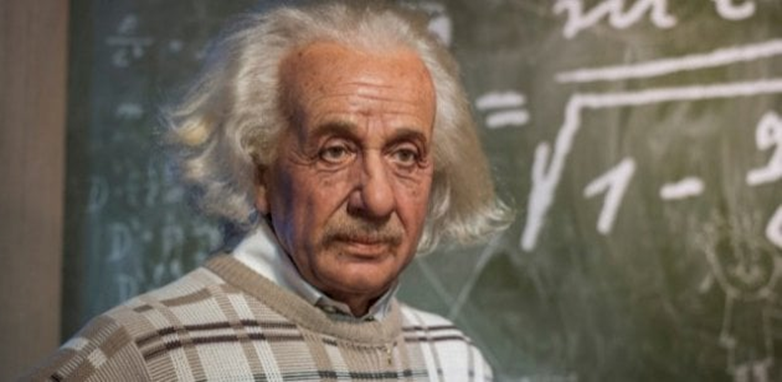~How Einstein saw the universe~

Albert Einstein (German: Albert Einstein) (March 14, 1879 - April 18, 1955) was a German-born physicist (who later renounced German citizenship), Swiss and American by nationality, of Jewish parents. He is known as the father of relativity as he established the famous theories of special relativity and general relativity, which were the first building block. For modern theoretical physics, he won the Nobel Prize in Physics for the year 1921 for a research paper on the photoelectric effect, among three hundred other scientific papers he wrote on the equivalence of matter and energy (E=mc²), quantum mechanics, and others. His proven conclusions led to the explanation of many scientific phenomena that physics had failed to do. Classic proven.
He began his journey with relativity with “special relativity,” which contradicted Newton’s theory of time and space, specifically solving the problems of the old theory regarding electromagnetic waves in general, and light in particular, between 1902 and 1909 in Switzerland. As for “general relativity,” he proposed it in 1915 in which he discussed gravity, and it represents the current description of gravity in modern physics. General relativity generalizes both special relativity and Newton's law of general gravitation by providing a unified description of gravity as a geometric property of time and space, or what is termed space-time.
“From the age of twelve I began to doubt authority and distrust teachers. I learned all my science at home, first from my uncle and then from a student who came to eat with us once a week. He used to give me books on physics and astronomy.
The more I read, the more I became puzzled by the order of the universe and the disorder of the human mind, by scientists who could not agree on the how, when, and why of creation.
Then one day, this student brought me Kant's Critique of Pure Reason. Upon reading Kant, I began to doubt everything I had been taught. I no longer believe in the known God of scriptures, but rather in the mysterious God expressed in nature.

The basic laws of the universe are simple, but because our senses are limited, we cannot understand them. There is a pattern in creation. If we look at that tree outside whose roots are searching under the sidewalk for water...or the flower that sends its sweet scent to the pollinating bees, or even ourselves and the inner forces that drive us to action, we can see that we are all dancing to a mysterious tune, and the flute player who is playing this... Melody from a mysterious distance - whatever name we give it - the creative force or God - is more powerful than all book knowledge.
I like to experience the universe as one harmonious unit. Every cell has life. Matter also has life. It is solid energy... All nature is life, and life, as I see it, rejects a man-like God.
Man has infinite dimensions and finds God in his conscience. [Cosmic_religion] has no doctrine other than teaching man that the universe is rational and that his highest destiny is to contemplate it and participate in the creation of its laws.
The real world is not moved by praise, blame, or preaching. It reveals the universe and amazes people eagerly without pushing or forcing them, to witness something new: the order, the harmony and the splendor of creation! If we want to improve the world, we cannot do so with scientific knowledge but with high ideals. Confucius, Buddha, Jesus and Gandhi have done more for humanity than science. We must begin with a person's heart - with his conscience - and the values of conscience can only be manifested through selfless service to humanity.
Religion and science go together. As I said before, science without religion is lame and religion without science is blind. They are interconnected and have a common goal - the search for truth.”
~Albert Einstein
Source: websites

